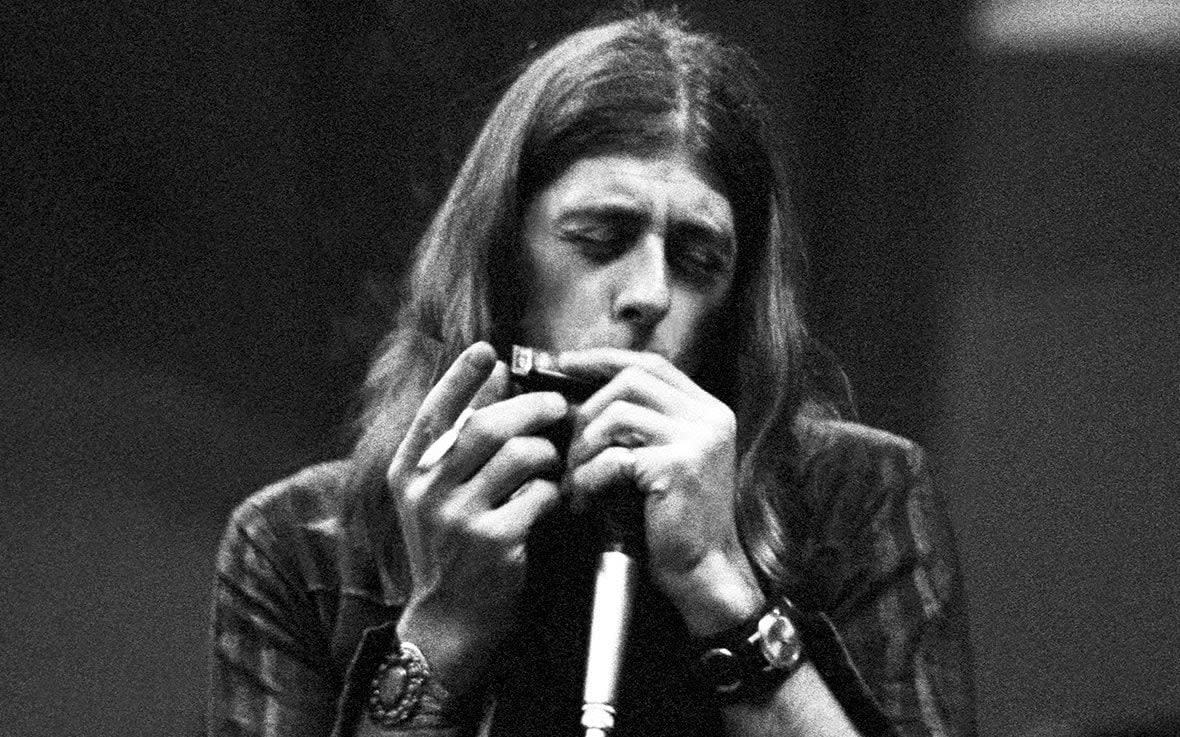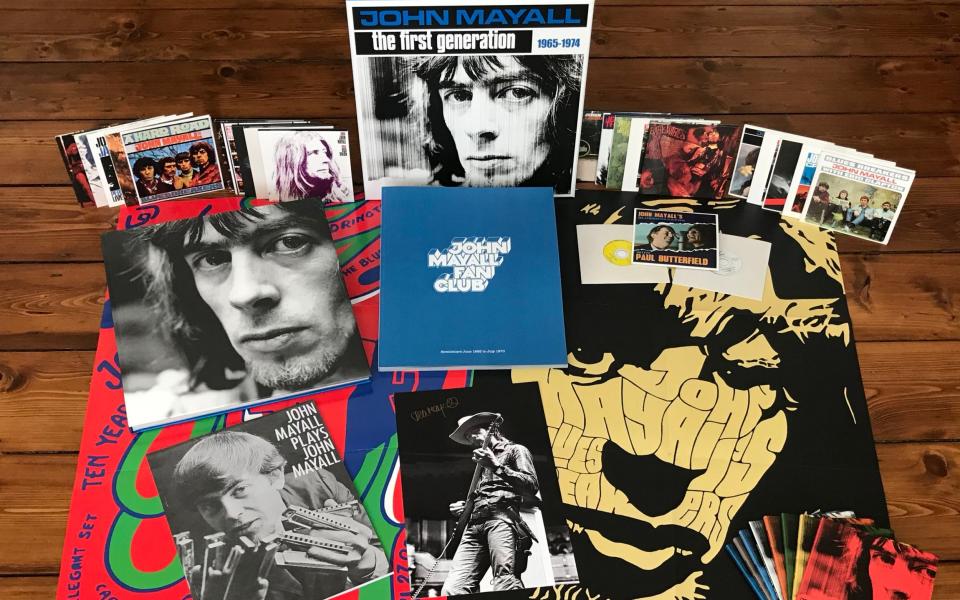John Mayall is the true granddaddy of rock – and this mammoth collection proves it

John Mayall is a curious figure in rock history, a bit part player in his own story. At 87, the multi-instrumentalist has been a headline act since the mid-60s, a prolific talent who has written hundreds of songs and released around 70 albums across a career spanning six decades. Before the pandemic, he could still be found out on the road, playing hundreds of gigs a year. Yet you never hear him on oldies radio or film soundtracks, and I suspect most music lovers would be hard pressed to name a single one of his songs.
Even amongst those who know and admire him, he is renowned more for his influence on other musicians than his own voluminous recorded work. John Mayall’s 1966 album Blues Breakers represented a turning point in rock history and is still regarded as a classic, but fans refer to it as "Beano", after a comic one of his band members is shown reading on the cover. It was the first album to really signal the arrival of a new kind of guitar hero playing fierce, overloaded, sustained lead. But the hero was Eric Clapton, not Mayall.
A key figure in the British blues boom of the sixties as a band leader, mentor and innovator, the constantly shifting line-ups of his backing group the Bluesbreakers provided a showcase for some of the greatest guitarists of all time: Eric Clapton, Peter Green (later of Fleetwood Mac) and Mick Taylor (of The Rolling Stones). Bassists Jack Bruce (of Cream) and John McVie and drummer Mick Fleetwood (still the rhythm section of Fleetwood Mac) all came through his ranks.
This beautifully curated if rather expensive (retailing at £275) limited-edition box set attempts to put Mayall back at the centre of his own voluminous output. The 35 CDs includes all of his releases from the period when he was a genuine star attraction on the rock scene and regularly appeared in the album charts, along with extra tracks and seven CDs worth of live shows and BBC recordings. The standard of musicianship throughout is fantastic, as you might imagine. Mayall was an ambitious band leader, but only in terms of music rather than career, and he would genially if ruthlessly swap players whenever he spotted another interesting talent to investigate. There were 15 different line-ups of the Bluesbreakers in the Sixties, and when Mayall relocated to California in the Seventies he began to explore jazz-blues fusions in more acoustic-flavoured set-ups, with line-ups that included such gifted players as saxophonist John Almond and violinist Don Harris.
Mayall was a prodigious multi-instrumentalist himself, playing guitar, organ, piano and harmonica, often at the same time, with madcap exuberance. He plays pretty much everything himself on 1967 solo album The Blues Alone, which (had it not been for his reliance on contributions from session drummers) is almost the first proper multi-tracked one-man-band album, preceding Paul McCartney’s solo debut by three years.

All of this is lovingly annotated in an informative and handsomely designed hardback, and supported by facsimiles of posters, press packs and fan club newsletters. It is a real treasure trove for the Mayall aficionado, yet I suspect it won’t do much to burnish his reputation amongst non-believers.
After spending a weekend diving through the entire recorded output of his glory days, I can begin to understand why Mayall might have failed to find his own purchase on the face of rock history. It is pretty evident that you had to see him live to feel the full impact of his talents, and once converted his audience has remained loyal. But as a singer on record, his voice is thin and flavourless. You can’t help but wish he’d done what other blues band leaders of the era opted to do and hire Rod Stewart, Chris Farlowe, Robert Plant or some other young gun with a bit of grit and texture to front proceedings. And as a songwriter, well, it surely says something that he filled so many albums with his compositions over the years but never had a hit single. He is (sorry, John) a quite atrociously banal lyricist, whose prodigious output was partly fuelled by the simple expedient of apparently singing whatever was on his mind over a blues chord sequence. “What’s wrong with me? I still got virginity,” he laments on Wish I Knew A Woman, from Memories (1971). “Guys are driving me mad with all the women that they’ve had / All I got is my hand for satisfaction every night.”
It is one of a few too many songs dwelling on his rather lecherous views of womankind. A more honourable obsession was environmentalism, but I am not convinced the greatest vocalist on earth could do much with lines like “Make manufacturers uncomfortable / Containers that are non-returnable” from Nature’s Disappearing on USA Union (1970). He plunges to William McGonagall depths of oratorial triteness on Accidental Suicide, his misguided “tribute” to Jimi Hendrix from Back to the Roots (1971). “Drugs may bring you joy / But the danger there’s that they destroy / So watch what you do / Or you can be the next to go.” Let that be a lesson to you, kids.

35 CDs of this kind of stuff is heavy work. Nevertheless the rewards are abundant, manifesting every time Mayall drifts from the microphone and lets his players express themselves. Many of his original albums were recorded live, because that is the environment in which his band’s flourished, revelling in a weave and tangle of instrumentation around the blues frame works Mayall provided. There are extended jams, with guitars and later violins flying off into the stratosphere, lots of nimble bass solos and a few too many drum solos too. The early work provides an interesting contrast in styles, and it is informative to observe the different touches and instincts of Clapton, Green and Taylor.
Without Mayall’s discernment and encouragement in setting stellar talents on their paths, the history of rock may have turned out very different. His is a story that deserves to be told and music that is never less than interesting to listen to. This gorgeously presented box set gives one of rock’s invisible heroes the kind of serious attention he warrants.
John Mayall: The First Generation 1965-1974 (Madfish) is on sale now for £275


